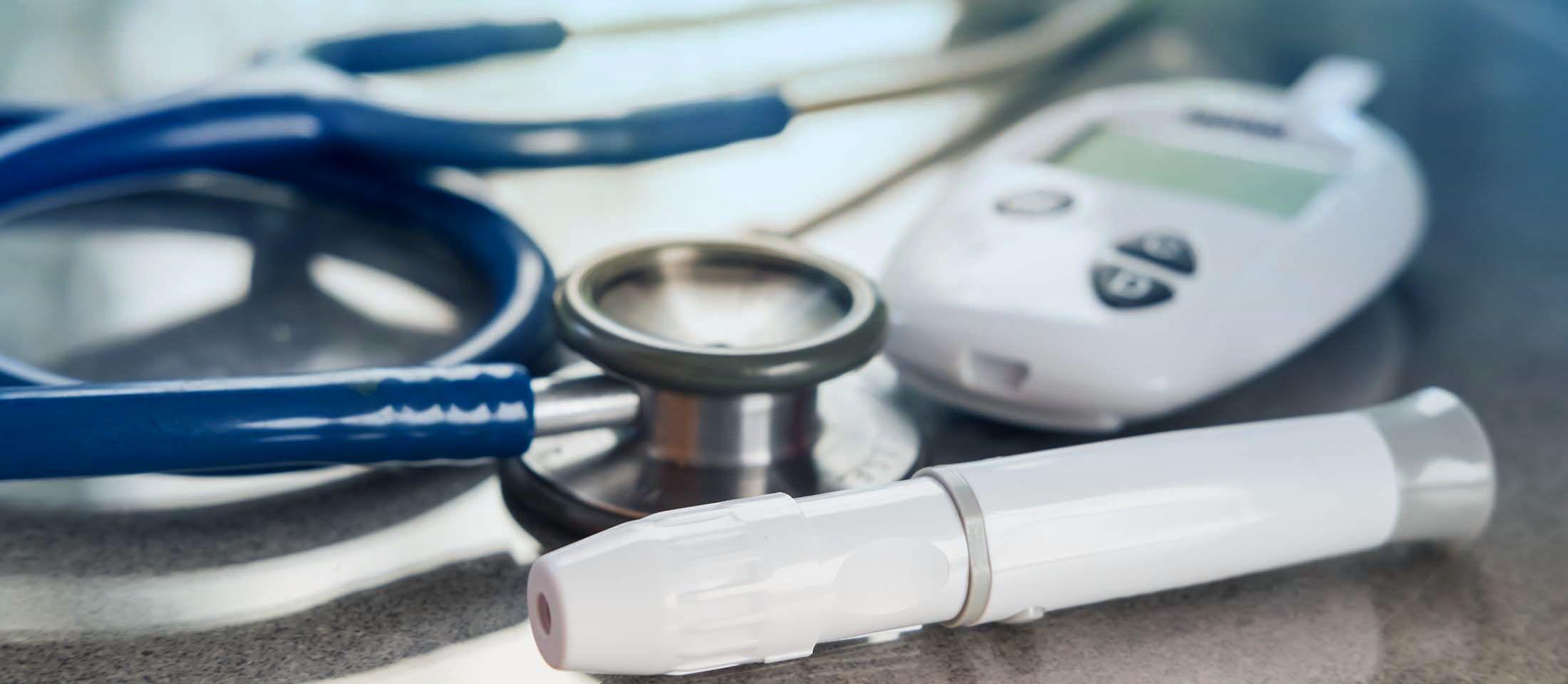Metropolitan General runs a Diabetes Center as well as an Internal Medicine and Diabetes Clinic. The Clinic is staffed by specialized medical and nursing personnel, and cooperates with physicians from all specialties to provide effective prevention, timely diagnosis and treatment of diabetes, as well as hospitalization for diabetics.
The Diabetes Center runs:
- A Diabetes Prevention Division, where specialized physicians perform complete and individualized check-ups, as well as monitoring for the timely diagnosis and applicable treatment of diabetes. A check-up can highly predict the risk of developing diabetes, either juvenile (type 1) or adult (type 2). Type 2 prevention is totally feasible in the prediabetes stage. In type 1, prevention involves early diagnosis and protection from complications, given its onset is sudden and commonly dramatic. A specialized nurse takes care of patient education on nutrition and injection techniques, especially in young patients suffering from type 1 diabetes.
The check up, offered at a concessionary price, can be performed 45 minutes prior to the clinical examination and covers all basic hematologic and cardiologic tests. Thus, the therapy regimen is based on the results and planned by the Diabetes specialist in a rational and individualized manner. Medical history, tests and medication administered are all electronically stored so that diabetics can address any problem they may encounter, on a daily basis over the phone. - Diabetes Regulation Clinic: the management of the condition is holistic and aims at more than just reducing blood glucose levels, as to regulate diabetes means to prevent complications. So, management includes not only the appropriate regulation and regular monitoring of all risk factors (e.g. cholesterol, hypertension), but also prediction of the risk of complications and adaptation of the therapy regimen to one’s age, lifestyle, profession and educational attainment. The corner stone of Diabetes Self-Management Education (DSME) is to help patients become the “doctors” of themselves.
- Diabetic Foot Clinic: headed by a podologist, and only on scheduled appointments, all problems related to lower extremities can be treated [bunions, foot indurations, ingrown nails-conservative treatment without total onychectomy (surgical excision of toenail), ulcers and contaminations, fungal infections, thickened toenails trimming, etc]. With the appropriate education-care, along with the potential use of orthoses-diabetic shoes, all serious foot problems are preventable.
- Diabetic Neuropathy Clinic (Pain): the Clinic conducts screening tests for diabetic neuropathy (Neuropad test, monofilaments) and treats all problems related to diabetes and the nervous system (dementia, instability, tremor, etc). The Diabetes Center and the Internal Medicine and Diabetes Clinic closely cooperate with the other Departments of Metropolitan General, so that all diabetics enjoy a comprehensive, affordable and fast treatment and monitoring system. Namely:
- The Department of Medical Imaging is equipped with an ultrasound device, Triplex ultrasonography, latest generation CT-scan, while the Hemodynamics Laboratory accommodates digital angiography equipment for the fast and bloodless examination of each body vessel.
- The Department of Interventional Radiology can manage effectively, and in most cases minimally invasively, almost all diabetes-associated vascular problems.
- The Ophthalmology Office, upon scheduled appointment, can check the eyes, especially the fundus, and offer prevention by specialized ophthalmologists who perform all current therapies when needed (laser, injections, etc).
- Staffed by a specialized team of cardiologists, the Department of Cardiology has extensive experience on diabetes. Stress test, heart triplex (color Doppler), rate and pressure holter monitoring, bloodless MR angiography and traditional coronary angiography are some of the diagnostic and therapeutic tools routinely used in the Department. In case hospitalization is required, the Department closely cooperates with the Diabetes specialist, given gluocose regulation in acute heart conditions is crucial and, when necessary, proper insulin should be administered.
Staff
Chief:
Antonios P. Lepouras, Internist - Diabetes specialist
Assistant:
Michail Delivorias, Pneumonologist
Contact Numbers: +30 210 650 2941










































